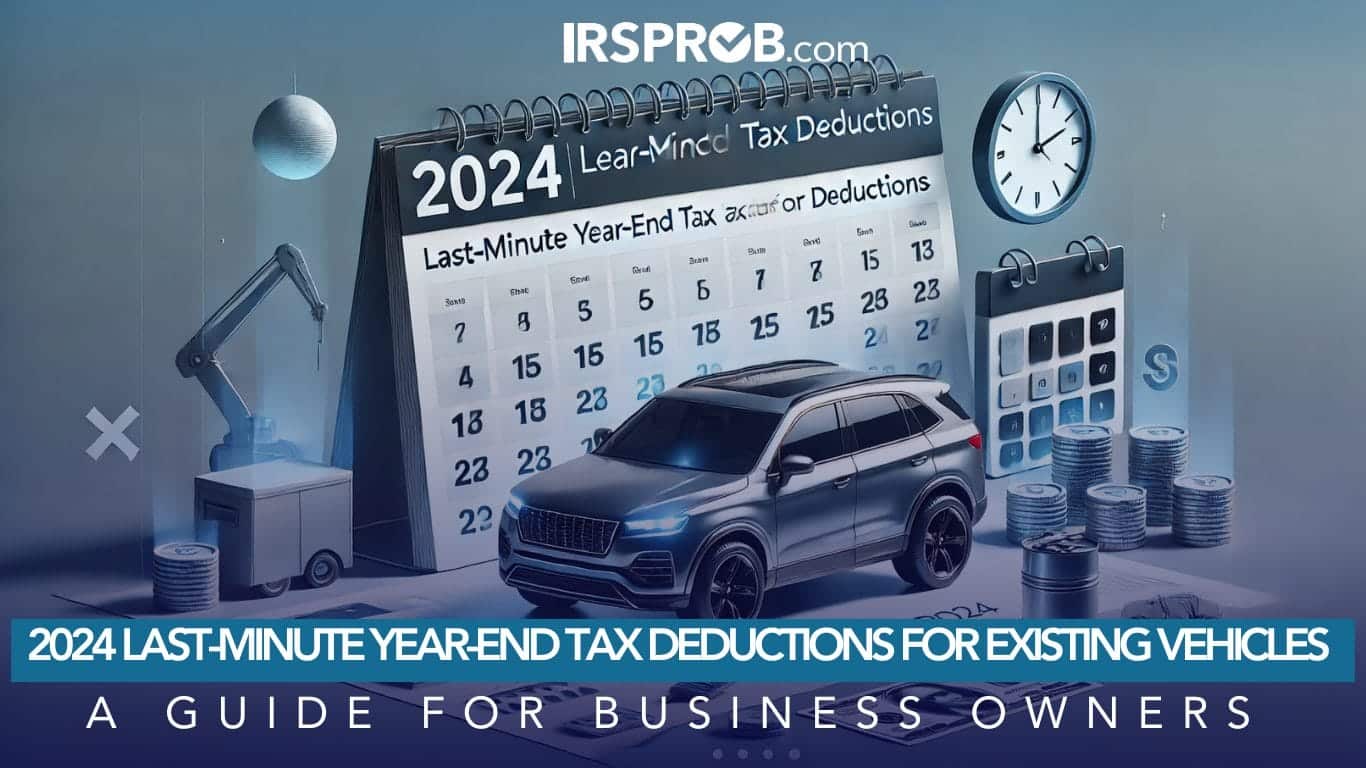
As the year comes to a close, it’s the perfect time for business owners to revisit their vehicle-related tax strategies. Whether you’re using a vehicle primarily for business or even leveraging personal vehicles for tax benefits, there are key opportunities to optimize your deductions before December 31, 2024. Here’s what you need to know.
Start with Business Vehicles
If you own vehicles through your business—be it a sole proprietorship, LLC, or other pass-through entity—it’s essential to evaluate their tax impact. Whether you’re selling, scrapping, or continuing to use these vehicles, the tax treatment varies based on gains, losses, and depreciation.
Key Rules to Remember
- Depreciation and Gains: Any gain from depreciation recapture is taxed as ordinary income. This applies to the portion of the sale price that exceeds the adjusted basis due to depreciation deductions taken in prior years.
- Capital Gains Potential: If the vehicle appreciates beyond its original purchase price—though rare—this gain is treated as a capital gain, which typically carries a lower tax rate. This scenario is more common with antique or classic vehicles.
- Losses Equal Deductions: Losses on the sale of business vehicles provide ordinary deductions that directly reduce taxable income.
These gains and losses are reported on IRS Form 4797. Since they’re not part of your regular income or expense categories, they won’t affect your self-employment taxes, offering a unique tax-saving opportunity.
Strategies for Business Vehicles
If you’re looking to take advantage of vehicle loss deductions, consider these approaches:
- Sell or Dispose of Underperforming Vehicles: If a vehicle is no longer useful or cost-effective, selling it at a loss can generate an ordinary deduction. Ensure the transaction is completed before year-end to secure the deduction.
- Evaluate High-Mileage Vehicles: Older vehicles with significant wear and tear often qualify for meaningful loss deductions upon sale or trade-in.
- Analyze Depreciation Recapture: If your vehicle has retained much of its value, be cautious about depreciation recapture, which can offset some tax benefits.
- Plan for Replacement: Selling a business vehicle at a loss and replacing it with a more efficient or versatile option could provide a dual benefit—lower taxable income and potential Section 179 or bonus depreciation deductions on the new vehicle.
Don’t Overlook Personal Vehicles
Your personal vehicle might also provide a last-minute tax-saving opportunity if you’ve used it for business purposes. To claim deductions, accurate record-keeping is critical. Mileage logs and detailed expense records can substantiate your claims.
Key deductions to consider include:
- Standard Mileage Rate: For 2024, the IRS mileage rate is 65.5 cents per mile. If you’ve driven your personal vehicle for business purposes, multiplying the total business miles by this rate can yield a significant deduction.
- Actual Expense Method: Alternatively, you can deduct a portion of actual expenses (e.g., fuel, maintenance, insurance) based on the percentage of business use. This method is more labor-intensive but can result in larger deductions if your actual costs are high.
If you’re considering transitioning a personal vehicle to full business use, consult a tax professional to ensure compliance with IRS rules and avoid potential red flags.
Timing Is Everything
For any of these strategies to benefit your 2024 taxes, action must be taken by December 31. This includes completing sales, documenting losses, and making necessary elections for deductions.








